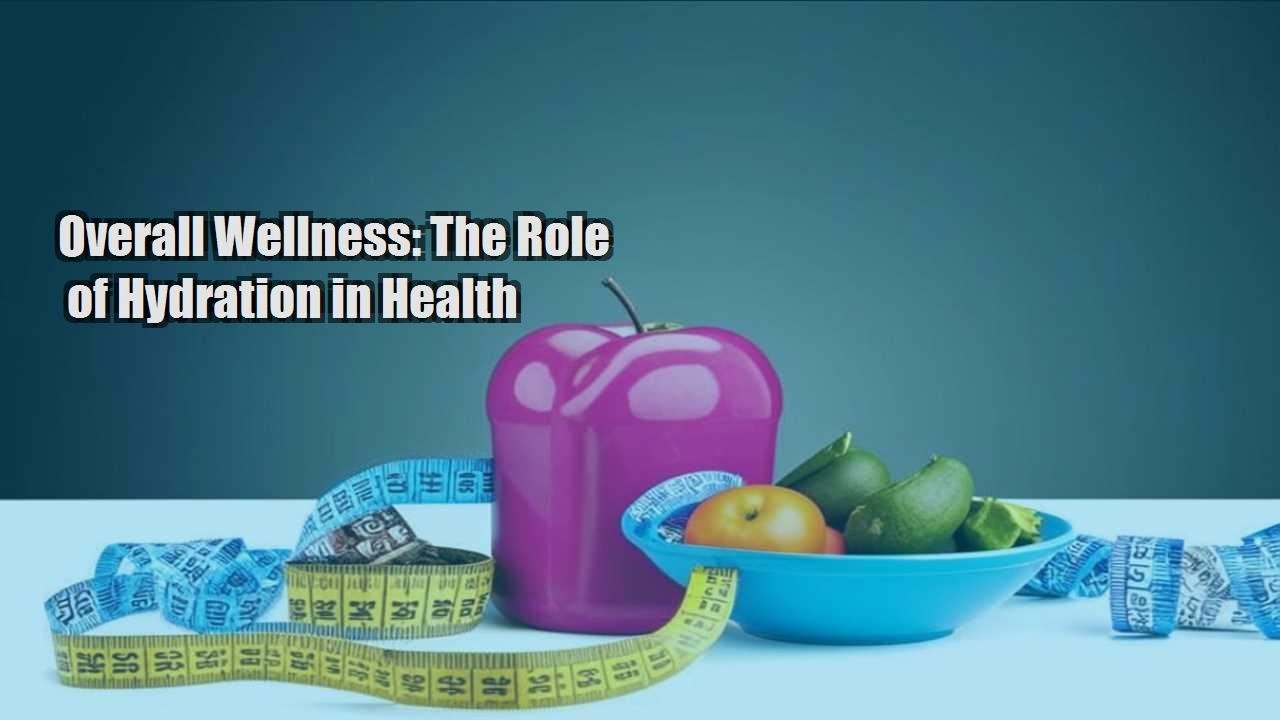Hydration is an essential aspect of maintaining overall wellness. Proper hydration is crucial for various bodily functions, including temperature regulation, joint lubrication, and nutrient transportation. Understanding the importance of staying hydrated and incorporating adequate water intake into daily routines can significantly enhance ones health and well-being.
The Importance of Hydration for the Human Body
Water is the most abundant substance in the human body, accounting for about 60% of body weight. It plays a vital role in numerous physiological processes, making it indispensable for health. Here are some key functions of water in the body:
- Temperature Regulation: Water helps regulate body temperature through sweating and respiration. This function is crucial during physical activity and in hot climates.
- Joint Lubrication: Water acts as a lubricant for joints, reducing friction and allowing for smooth movement.
- Nutrient Transport: Water is essential for the transportation of nutrients and oxygen to cells and the removal of waste products from the body.
- Digestion: Adequate hydration aids in digestion by helping to break down food and absorb nutrients efficiently.
- Skin Health: Staying hydrated improves skin elasticity and helps maintain a youthful appearance.
Health Benefits of Staying Hydrated
Proper hydration offers a myriad of health benefits, impacting both physical and mental well-being. Here are some significant benefits of maintaining adequate water intake:
1. Enhanced Physical Performance
Dehydration can significantly impair physical performance, leading to fatigue, decreased coordination, and muscle cramps. Athletes and physically active individuals must prioritize hydration to sustain energy levels and optimize performance.
2. Improved Cognitive Function
Water intake is closely linked to cognitive function. Even mild dehydration can affect concentration, alertness, and short-term memory. Staying hydrated ensures that the brain functions at its best, enhancing focus and mental clarity.
3. Weight Management
Drinking water can aid in weight management by promoting satiety and reducing overall calorie intake. Sometimes, the body can mistake thirst for hunger, leading to unnecessary snacking. Staying hydrated helps control appetite and supports healthy metabolism.
4. Detoxification
Water is essential for the bodys natural detoxification processes. It helps flush out toxins through urine and sweat, promoting kidney function and maintaining overall health.
5. Reduced Headache Frequency
Dehydration is a common trigger for headaches and migraines. Ensuring adequate hydration can help reduce the frequency and severity of headaches, contributing to overall well-being.
Signs of Dehydration
Recognizing the signs of dehydration is crucial for taking timely action. Common symptoms of dehydration include:
- Thirst
- Dry mouth and lips
- Dark yellow urine
- Fatigue
- Dizziness
- Confusion
In severe cases, dehydration can lead to more serious health issues such as kidney stones, urinary tract infections, and heatstroke. It is vital to address dehydration symptoms promptly by increasing water intake.
Tips for Staying Hydrated
Maintaining proper hydration requires conscious effort and habits. Here are some practical tips to help you stay hydrated:
1. Carry a Water Bottle
Having a water bottle with you at all times serves as a constant reminder to drink water. Choose a reusable bottle to keep your water intake consistent throughout the day.
2. Set Hydration Goals
Setting daily hydration goals can help you monitor your water intake. Aim for at least eight 8-ounce glasses of water per day, but adjust based on your activity level and climate.
3. Eat Water-Rich Foods
Incorporate fruits and vegetables with high water content into your diet. Cucumbers, watermelon, oranges, and strawberries are excellent choices to boost hydration through food.
4. Use Hydration Apps
Technology can be a great ally in maintaining hydration. Use hydration tracking apps to set reminders and log your water intake, ensuring you stay on track with your hydration goals.
5. Listen to Your Body
Pay attention to your bodys signals. Thirst is an obvious indicator, but also be mindful of more subtle signs like dry skin, infrequent urination, and feeling lightheaded.
Hydration Myths and Facts
Several myths about hydration can lead to confusion. Lets debunk some common myths and present the facts:
Myth 1: You Need to Drink Eight Glasses of Water a Day
Fact: While the eight glasses rule is a general guideline, individual hydration needs vary. Factors such as body weight, activity level, and climate influence the amount of water you need. Listen to your body and drink when youre thirsty.
Myth 2: Coffee and Tea Dehydrate You
Fact: While caffeine has a mild diuretic effect, the water content in coffee and tea contributes to your overall hydration. Moderate consumption of these beverages can be part of a healthy hydration routine.
Myth 3: Clear Urine is the Best Indicator of Hydration
Fact: Pale yellow urine is typically a good indicator of proper hydration. Completely clear urine can indicate overhydration, while dark yellow urine suggests you need to drink more water.
Special Considerations for Hydration
Certain groups of people may need to pay extra attention to their hydration levels, including:
Athletes
Athletes lose a significant amount of water through sweat during exercise. It is crucial for them to hydrate before, during, and after physical activity to maintain performance and prevent dehydration.
Children and Elderly
Children and the elderly are more susceptible to dehydration. Children may not recognize or communicate their thirst effectively, while the elderly may have a diminished sense of thirst. Caregivers should ensure these groups have regular access to fluids.
Pregnant and Breastfeeding Women
Pregnant and breastfeeding women have increased hydration needs to support their health and the development of their baby. Adequate water intake is essential for milk production and overall well-being during this period.
Conclusion
Hydration is a cornerstone of overall wellness, affecting numerous aspects of physical and mental health. By understanding the importance of staying hydrated and implementing practical tips to maintain proper hydration, you can enhance your well-being and prevent dehydration-related issues. Remember to listen to your body, drink water regularly, and enjoy the numerous health benefits that come with staying hydrated.
Incorporate these practices into your daily routine and experience the positive impact of hydration on your health. From improved cognitive function to enhanced physical performance, staying hydrated is a simple yet powerful way to support your overall wellness.







